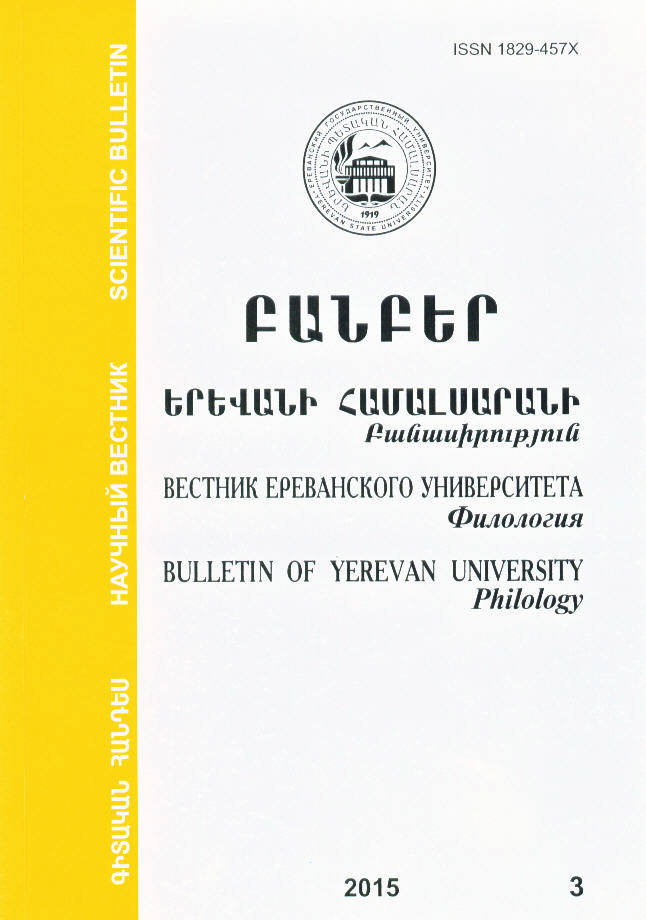The Structural-Syntactic Characteristics of the Legislative Text
DOI:
https://doi.org/10.46991/BYSU:B/2015.6.3.071Keywords:
“Noun of Noun” Phrases, anaphora, parallel structures and paragraphs, passive constructions, agent, ambiguity, single meaningness of the expressionsAbstract
In the given article an attempt is made to reveal the important role of anaphora in the formation of parallel structures and paragraphs and account for the wide use of passive constructions as well as of “Noun + of + Noun” Phrases in the text of the
Constitution of the United States of America. The parallel structures which are formed with the help of anaphora, emphasize the expressed idea and the causative-consecutive connection between the sentences, thus providing the clarity, objectivity and singlemeaningness of the expressions. In the case of passive constructions, the action is viewed as more important, than the agent. It is interesting that preference is often given to the passive constructions even when the agent is indicated. The wide use of “Noun +of + Noun” Phrases is largely conditioned by the tendency to emphasize the meaning of the utterance and avoid ambiguity.
Downloads
Published
How to Cite
Issue
Section
License
Copyright (c) 2021 Bulletin of Yerevan University

This work is licensed under a Creative Commons Attribution-NonCommercial 4.0 International License.

